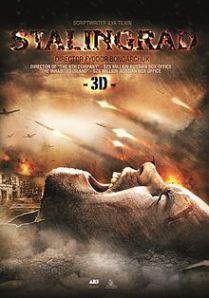You couldn’t have timed this any better (or worse, depending on how you look at it). Last Thursday, news broke that Russia was getting pretty serious about outlawing foreign movies, most specifically American ones, that “demonize Russia and Russians.”:
“In some films, anti-social and sometimes anti-Russian rhetoric is present, confusing the younger generation,” the chamber’s first deputy secretary Vladislav Grib was quoted as saying on Sept. 24 by the Russian news agency ITAR-TASS. “At the same time, Russian pictures have a hard time reaching the screens and sometimes they are unable to do that at all […] We understand that there is no way for Hollywood to stop portraying us as the bad guys. We just advise that Hollywood add some balance and introduce some good Russian characters into their stories too. Apart from being fair and politically correct, this approach will also help keep screens open for Hollywood.”
The very next day The Equalizer opened, starring Denzel Washington as a Boston-based, retired block ops government operative who finds himself at war with the Russian mob after springing to the defense of a young prostitute (Chloe Grace Moretz). Not to spoil too much but the Russians are the bad guys, a lot of them die, and Washington’s character even travels to Russia at some point to kill off more bad guys on their home turf. What else would you expect, really, from a film adapted from a Cold War-era (i.e., 1980s) TV show?
Russians have been Hollywood’s go-to bad guys since the 1940s, and while that fell out of fashion in the 90s it suddenly seems relevant again now that real life Bond villain Vladimir Putin insists upon reasserting Russia as an aggressor state. From a storytelling perspective, the Soviets were great for lazy Hollywood writers because they could so easily be plugged in as a traditional military threat (Red Dawn, The Day After), spy menace (The Manchurian Candidate, to name but one of many), or even an ultra-simplistic sports rival (Rocky IV, The Cutting Edge). Now, thanks to Putin, Russian villains are making a comeback in Hollywood, be they corrupt officials (A Good Day to Die Hard), scary dudes (Jack Reacher), crazed business tycoons (Jack Ryan: Shadow Recruit), loan sharks (Limitless), or even inanimate space debris (Gravity).

Russian missile space debris destroys the US space station in Gravity, and they thought it made them look bad
There is a key difference between then and now, though. Back when the Soviet Union was still a thing, no more than 6 United States films were allowed to be released in Russia per year. So, what the heck did it really hurt if we made Russians the bad guys all the time? It’s not like they were seeing any of our movies. Things have changed. Russian currently has no limits on the number of Hollywood films it lets in. Even with its plot featuring Russian bad guys, The Equalizer opened in Russia as well as over 60 other foreign markets this weekend.
As it turns out, Russia is a pretty important market for Hollywood at this point. Let’s break it down:
- In a year in which the big European markets all declined, Russia’s box office was actually up 8% in 2013, pulling in a collective gross of $1.3 billion, good enough to make it the 8th leading global market for film.
- There were 75 Russian-made films, 192 foreign films, and 199 United States-made films released in the territory last year meaning only 16% of the films playing in Russia were Russian but 43% were from Hollywood
- Hollywood films accounted for 70% of Russia’s $1.3 billion gross.
- The highest grossing film of the year was the Russian-made Stalingrad 3D, but Iron Man 3 and The Hobbit: Desolation of Smaug were #2 and #3 in the year-end top 10.
This relative domination of the Russian market by Hollywood is all the more notable considering that most other major markets are actually starting to embrace more of their own home-grown movies. For example, China and Japan are the second and fourth-leading global marketplaces for film respectively, but 2013 was Hollywood’s worst year in China in nearly a decade and worst in Japan in over four decades. South Korea (6th biggest market) and India (7th biggest market) are also newly resistant to Hollywood’s charms. All of that serves to make Russia even more important to Hollywood’s bottom line.

This is being used as leverage. In calling for a ban on U.S. films until President Obama lifts his sanctions against Russia over the Ukraine-Crimea incident, top Russian director Yuri Kara argued, “Hollywood would exert pressure on Obama, and he would lift the sanctions.” Now, Russia’s parliament is framing such a potential move in more national pride terms, not at all liking the Russian villains in Hollywood films.
All of this must make Russia’s cultural minister and Putin loyalist Vladimir Medinsky deeply happy. He has long since proposed placing quotas on Hollywood imports pegged to the number of local releases, ensuring that 20-24% of all screen time in Russian theaters per year would be devoted to homegrown films. Back in March, Russian parliamentarian Robert Shlegel took Medinsky one step further when he introduced a bill in March proposing that 50% of all films released in Russia would have to be homegrown. Of course, that bill didn’t get passed, and there were government officials even before Medinsky who were arguing for a China-like quota system which would hopefully help to stimulate their own local film market.
The counter-argument to all of this is that with Hollywood accounting for so much of the Russian box office wouldn’t striking out at it to get back at Obama also ultimately hurt Russian theaters depending on those big Hollywood tentpole releases to generate audience flow? There’s no way Russia could suddenly start making over 100 more movies per year to make up for the loss of Hollywood releases should any kind of ban go into effect. Well, right now Russia’s public chamber is claiming it could potentially pick up the slack by importing more films from countries like Turkey, Korea, Iran, and Japan.
Maybe all of this is simply more hot air, or maybe it’s simply a logical progression (idea discussed, introduced in a too-extreme form in parliament, comes back around again later) which will ultimately end with Russia if not outright banning Hollywood then definitely placing quotas which will force it to jump through hoops like it has to with China. Either way, there is most definitely a lot of pure political grand-standing going on here. Even so, as an American I am reminded of the few times I’ve seen films which make the Americans the bad guys, a depiction which was actually fairly common in British film and TV for a while during the Bush administration. It’s always really jarring for me. I can’t imagine what it must be like looking up and always seeing your country depicted as the bad guy, although if that’s how the world sees you…
So, should Hollywood now double check its scripts now to make sure that its villains aren’t from a country whose business is too important to lose? Or, screw it, Russian villains are fun, keep doing it? Real world headaches. Where’s a good ole “If I can change, and you can change everybody can change” Rocky speech when you need one?
Source: THR
About these ads
